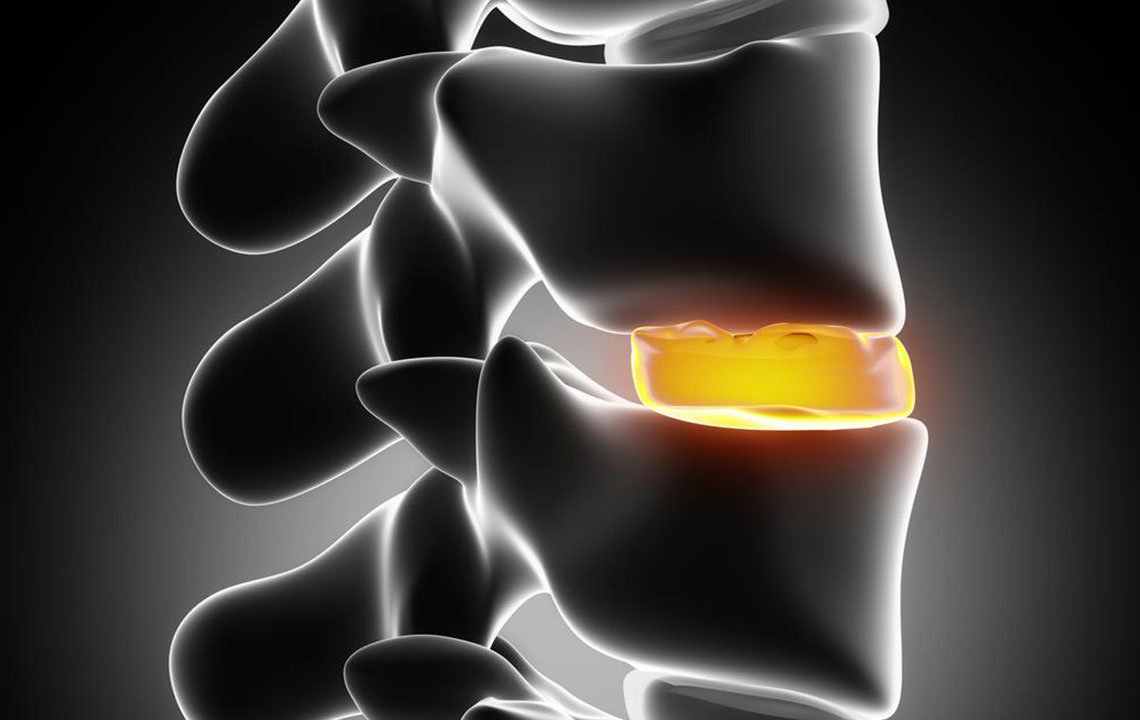All You Need to Know about the Bulging Disc Treatment
Numbness, muscle weakness or a tingling sensation in one or both your legs are common signs of bulging disc. Bulging disc is a condition where the d isc that is present between you r vertebrae bulges outside the normal space it occupies. It does not cause any rupture, and sometimes it does not even pain much.

The spinal disc is the natural cushion that helps you absorb the shock of the glycoprotein and fibrocartilage that separate your vertebral bodies. They help you to have a normal movement at each level of spinal motion. Annulus forms the outer section of the spinal disc that consists of various layers of multi-directional fibrocartilaginous fibers. These fibrocartilaginous fibers are densely packed around the glycoprotein filled disc nucleus.
The injuries that incur in your spinal disc vary from mild disc strains to complete disc rupture based on numerous factors. Bulging disc is the condition where the annulus is injured, and the weaken ed wall allows the nucleus to pressurize the weak wall of the disc . The bulging disc has the potential to trouble the nerve th at exits from your spine causing numbness, spasm, back pain and so on.
Causes
In a snippet, bulging disc occurs because :
- An existing weakness in the annulus was present or
- A sudden accelerated pressure circulated through the disc resulting in the fibers of the annulus getting torn .
These can be corrected by undergoing a bulging disc treatment after understanding the cause . Broadly, the main causes of bulging disc can be categorized into the following three headings:
Accumulated microtrauma: When repeatedly microtrauma occurs over an extended period then it might lead to a disc injury.
Sudden unexpected load : Sudden un expected load or pressure on the intervertebral disc can lead to traumatic condition, for example, a bike accident. The sudden force exerted on the disc at the time of impact has the potential to generate the natural defense attempt of the body to repel these force that may lead to the rupture of b ulging disc.
Genetic factor : The genetic predisposition can be a cause of various spinal injuries including bulging disc.
Symptoms
The common symptoms of bulging disc are numbness, back, and muscle weakness. In some cases, the bulging disc presses against the spinal cord. The symptoms of such conditions are:
Bulging disc in the thoracic spine:
- Numbness, muscle weakness or tingling sensation in one or both your legs.
- Increase in reflexes in both or just one leg which can cause spasticity .
- Minor or major changes in bowel or bladder functions.
- Paralysis from waist down.
Bulging disc in the cervical spine:
- Pain during neck movement.
- Sha rp pain over or near shoulder blade area.
- Radiating pain in the upper arm, forearm, and some cases also on your fingers.
In most of the cases, the bulging disc pain starts off very slow, but gradually it worsens with certain continued activities.
Bulging disc treatment
Once you’re diagnosed with a bulging disc condition based on the various tests and scans, your doctor or physiotherapist will preliminarily start off with the conservative bulging disc t reatment . The traditional method of bulging disc treatment does not include any surgery.
The b ulging disc treatment follows four distinct phases that deals with the various stages and issues of the bulging disc condition. The four phases are:
Phase 1: Pain relief and protection
In this phase, you will be focusing on minimizing the pain that disturbs you and your life at large. You will be given bulging disc treatment through tools like ice, acupuncture, electrotherapy and so on, to manage the inflammation.
Phase 2: Bulging disc exercise
Once your pain and inflammation subside , your focus would be turned to restore the normal joint alignment and range of movements, resting tension and muscle length, endurance, and muscle strength. Your physiotherapist will start on your lower abdominal and work on the core stability program t o help your essential muscle that dynamically and potentially controls your spine. Some stretching program and remedial massage session will help you loosen up your tightened muscle.
Phase 3 : Restoring full function
Once the dynamic control of your back is improve d , your physiotherapist will move to your pelvis and spine alignment. The outer core and leg muscle power will also be dealt with in this phase. The exercises will range from just brisk walking a round your nearest park to a marathon run . The choice of the exercise will depend on your health condition and age.
Phase 4: Preventing a recurrence
Your physiotherapist, in this phase, would work on exercises that will prevent the recurrence of the back pain and provide you a pain – free life ahead. They will customize some routines to help you maintain the good health of your back and spine disc .
However, in many cases, it is found that the conservative bulging disc Treatment method is not enough. Thus, doctors recommend surgery as bulging disc treatment . These surgeries are of different types depending on the area of your body affected by bulging disc.
Bulging disc is curable , and thus you need to start the treatment so that you do not suffer long from this condition for an extended period.











